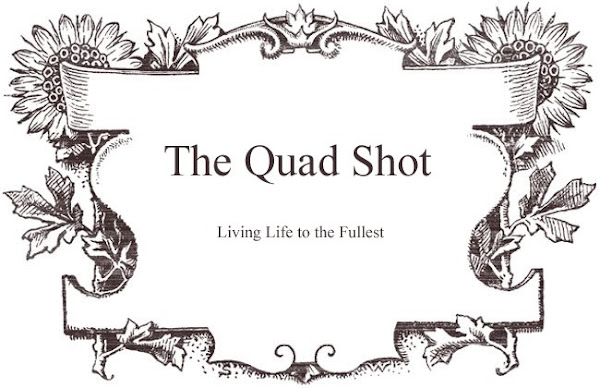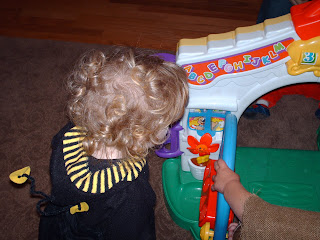I recently submitted an article to a local moms' publication called Hum Mums, and guess what? It got accepted! I've never been "published" before, so it feels pretty good. Here is the article:
Multiple Miscarriages: One Mother’s Journey
By: April Alexander
My Story
When I reached my early thirties my biological clock began screaming at me, and I found myself longing to have another baby. I figured it might take a little longer to conceive due to my age, but little did I know that I was about to start a journey I never could have imagined.
After months of trying to conceive, my pregnancy test finally revealed two lines. I called my husband immediately, and both of us reveled in the joy of becoming parents again. A few days later my elation turned to sadness, however, when I miscarried. I saw my doctor shortly after this and was told that isolated early miscarriages are common. I thought to myself, “Okay, no biggie, my body is just warming up.” I became pregnant a few months later, and I was confident that this pregnancy would stick. A few weeks into the pregnancy I was shocked and devastated when I suffered my second miscarriage.
My doctor was proactive and began treatment, although most doctors won’t take action until after a woman has had three consecutive early miscarriages. She prescribed natural progesterone hormone, as low progesterone is suspected to be one of the leading causes of early multiple miscarriages. I conceived again, and soon after my positive pregnancy test my doctor had my HCG, (Human Chorionic Gonadotropin), levels tested. HCG is a hormone the embryo produces after conception. When the results came back my doctor said sadly, “I’m sorry, you lost this one.” I was grasping for any remote shred of hope to cling to, and I remember asking her if she was sure even though I knew it was over.
I had now entered the territory of secondary infertility which is diagnosed when a woman who has had one or more children is unable to conceive or carry a baby to term. My doctor had the challenge of figuring out the cause of my early, (or chemical), miscarriages, and I was told that there was no guarantee that I would be able to carry another baby to term naturally. I could now relate with the millions of women who receive this devastating news. I kept thinking, “How could this be happening to me?” I was awash with feelings of anger, loss, fear, and sadness. I wanted my daughter to have a sibling, and as I saw other pregnant women around me I longed to become pregnant again.
After loads of testing, I was diagnosed with a rare autoimmune disorder called Antiphospholipid Antibody Syndrome, (APS.) APS is a disease which causes the veins in the placenta of a pregnant woman become filled with blood clots at the cellular level. These clots cut off the baby’s essential life giving blood flow and nutrients. My treatment was one baby aspirin per day and three daily self administered heparin injections.
Five months later I became pregnant, and this would be my last try, because if this pregnancy didn’t succeed I would need to take high risk medications. After an ultrasound at around six weeks it was official – we had a heartbeat! I made it through the first trimester with flying colors. But, at the end of the second trimester I started having serious problems with my heart, and another autoimmune disease flared up. I couldn’t believe all of this was happening to me. I desperately hoped and prayed that my baby would survive. Amazingly, I carried the pregnancy to term, and my miracle baby boy Justin was born on March 31, 2006! I don’t think there was a dry eye in the room that night; we were all so relieved that he had arrived into the world safe and healthy after the long, hard road.
The Fruit of My Labors
Through this journey I have learned an incredible amount about both the medical and emotional aspects of miscarriages. About 1 out of 4 women who become pregnant has a miscarriage at some point in her lifetime. Of all diagnosed pregnancies, between 15% and 20% end in a miscarriage in the first trimester or early in the second trimester. (1) The most common causes of repeated miscarriages include: endometriosis, genetic problems, structural problems involving the uterus or cervix, (such as an incompetent cervix), luteal phase defects, diabetes, and thyroid disease, (if it's not treated promptly), and immunological factors such as antiphospholipid syndrome. (2)
The emotional repercussions of having a miscarriage are far reaching, and many women feel isolated in their grief. When I was grieving my miscarriages it was difficult to find someone who could relate with my struggle. I joined an online support group, which helped me work through my grief and provided vital information about miscarriages. If you are grieving alone I encourage you to find support. There are local grief support groups, counseling services, and online communities that can help you through this time.
1.) Creinin MD, et al. (2001). Early pregnancy failure-Current management
concepts. Obstetrical and Gynecological Survey, 56(2): 105–113.
2.)
http://www.webmd.com/






























